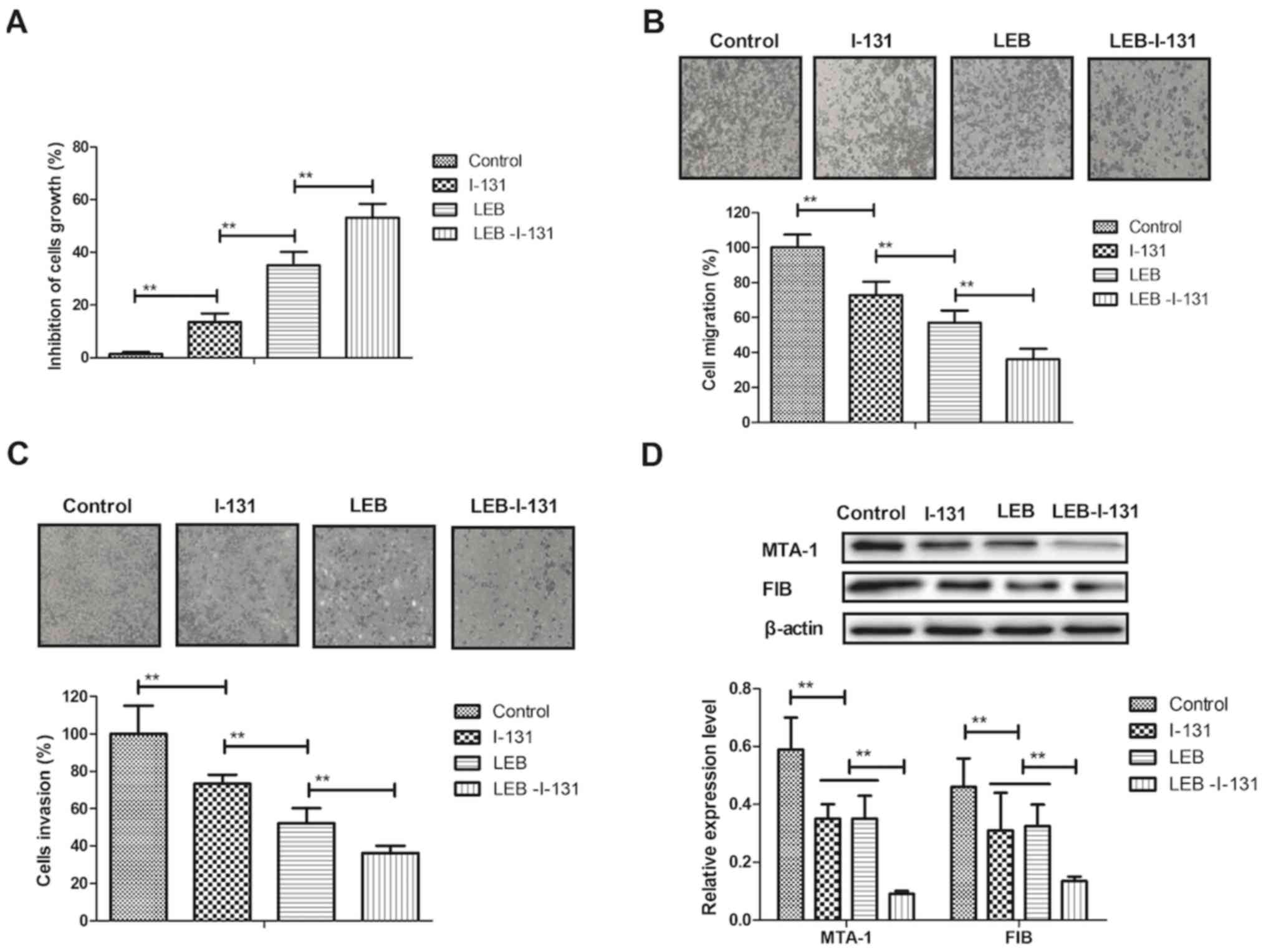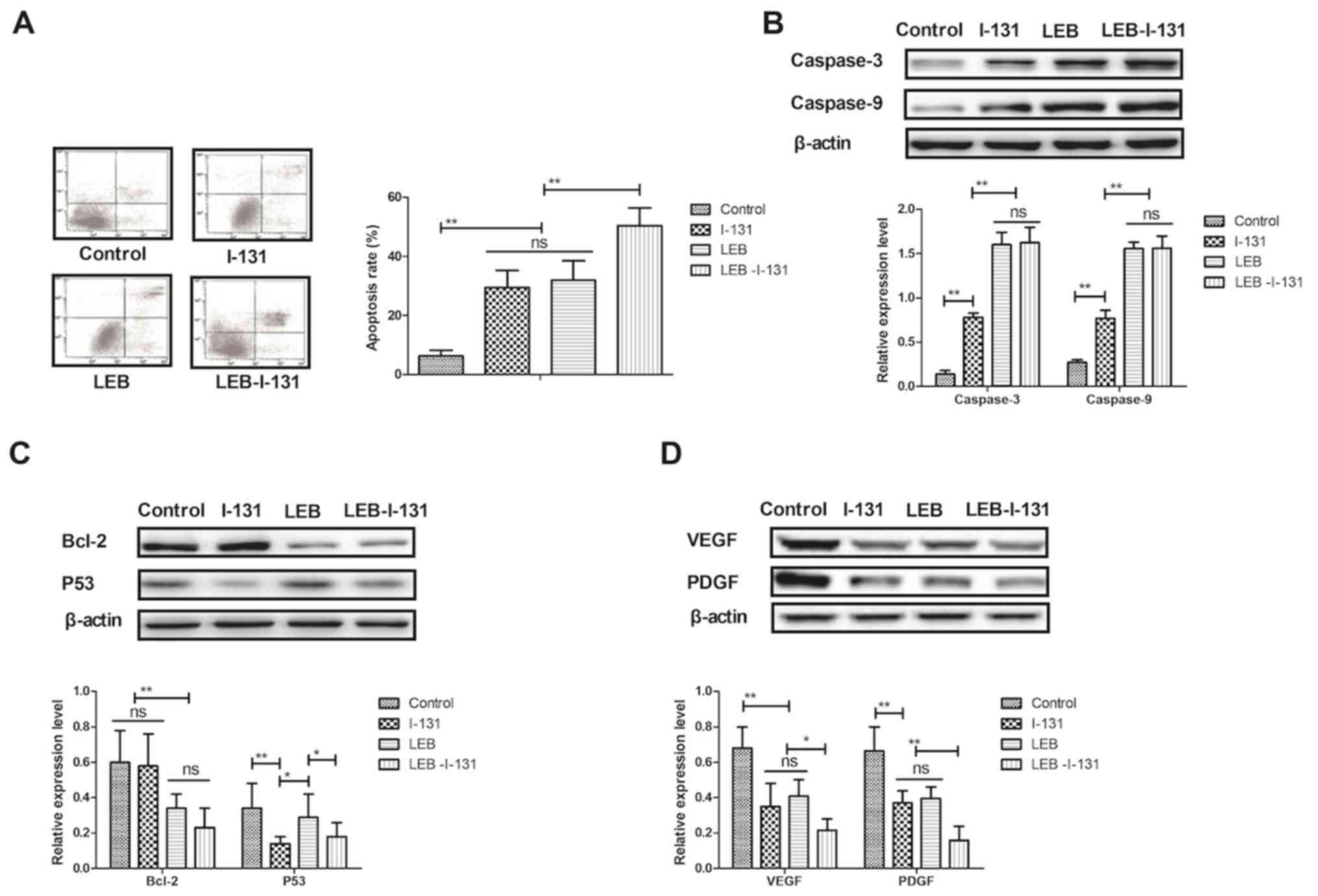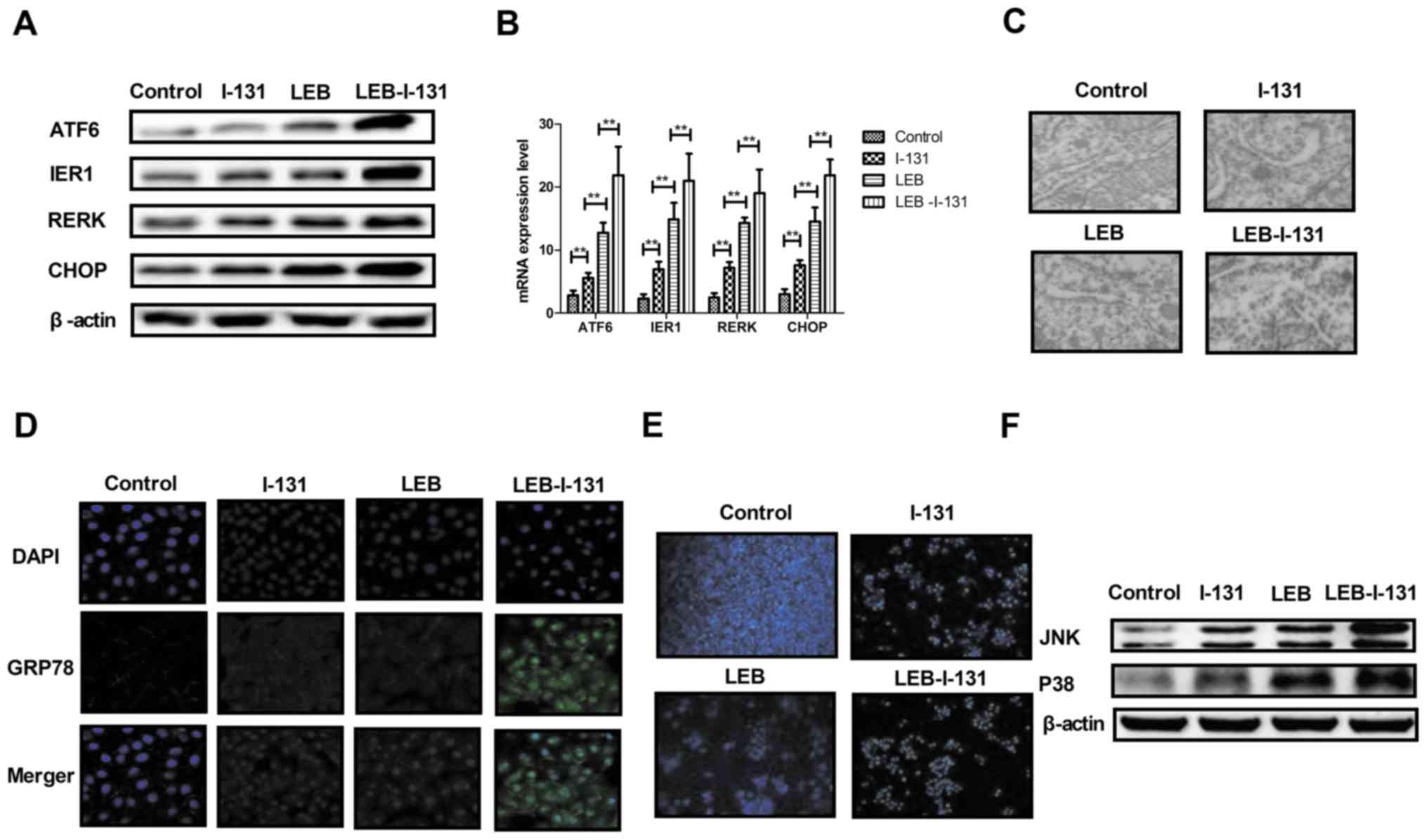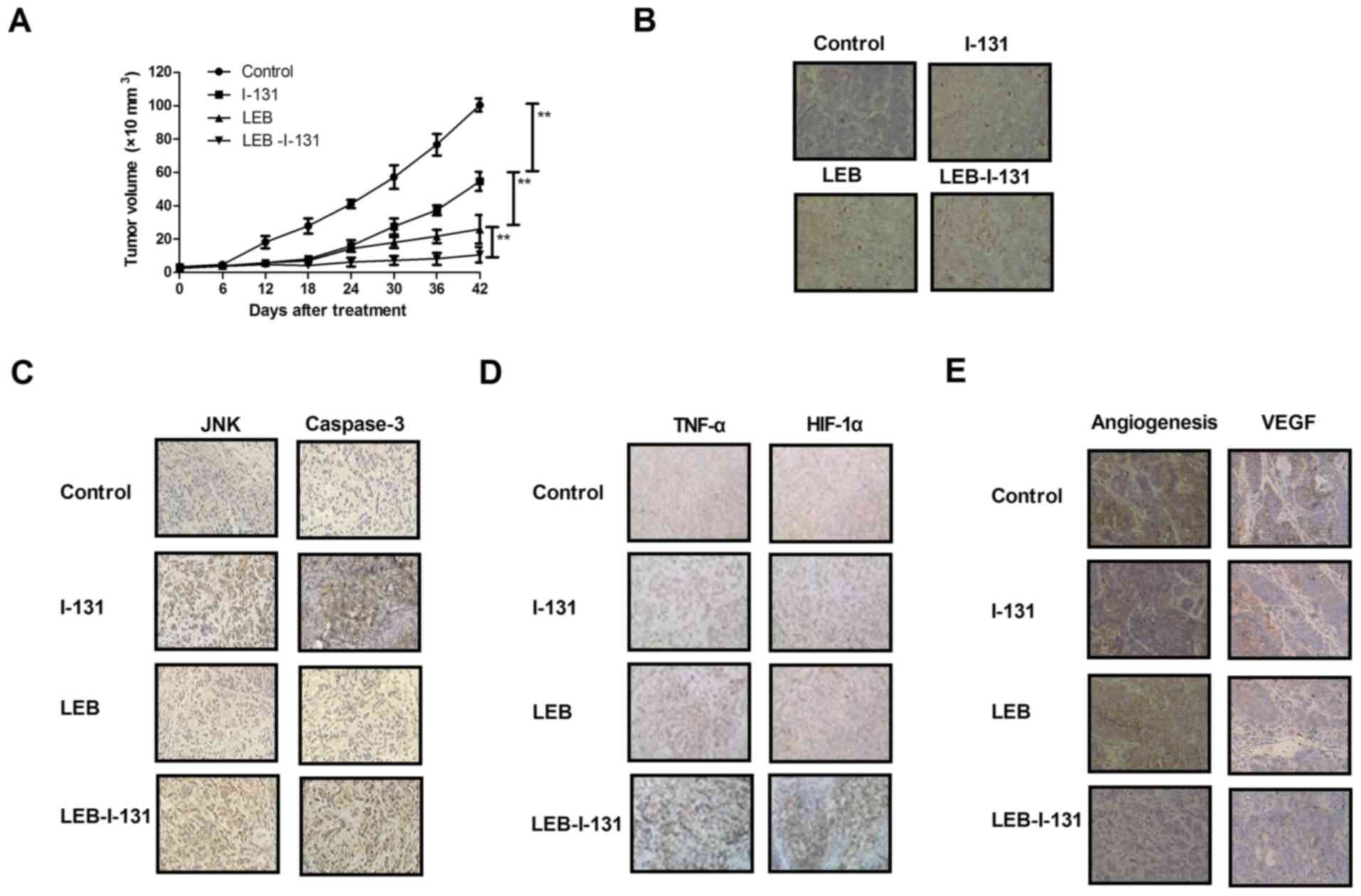|
1
|
Ao R, Fu R, Dong D, Zhu X, Liu H and Xie
K: Discerning primary tumors from metastases in synchronous
nasopharyngeal squamous cell carcinoma and cutaneous squamous cell
carcinoma: A case report and review of the literature. Oncol Lett.
7:1391–1394. 2014. View Article : Google Scholar : PubMed/NCBI
|
|
2
|
Ceballos Saenz C, Argyris PP, Manivel JC,
Urias Barreras CM and Koutlas IG: Nasopharyngeal hyalinizing clear
cell carcinoma: Report of the histopathologic features of a case
showing EWSR1 rearrangements by FISH and literature review. Int J
Surg Pathol. 22:667–672. 2014. View Article : Google Scholar : PubMed/NCBI
|
|
3
|
Petersson F: Nasopharyngeal carcinoma: A
review. Semin Diagn Pathol. 32:54–73. 2015. View Article : Google Scholar : PubMed/NCBI
|
|
4
|
Ren K, Wang W, Ma X, Guo F, Li P and Liu
L: Nasopharyngeal carcinoma mimicking Aspergillosis rhinosinusitis:
An unusual case report and review of the literature. Int J Clin Exp
Pathol. 7:9050–9055. 2014.PubMed/NCBI
|
|
5
|
Liang N, Xie J, Liu F, Xu D, Yu X, Tian Y,
Song M and Zhang J: Male breast metastases from nasopharyngeal
carcinoma: A case report and literature review. Oncol Lett.
7:1586–1588. 2014. View Article : Google Scholar : PubMed/NCBI
|
|
6
|
Lee AW, Ngan RK, Tung SY, Cheng A, Kwong
DL, Lu TX, Chan AT, Chan LL, Yiu H, Ng WT, et al: Preliminary
results of trial NPC-0501 evaluating the therapeutic gain by
changing from concurrent-adjuvant to induction-concurrent
chemoradiotherapy, changing from fluorouracil to capecitabine, and
changing from conventional to accelerated radiotherapy
fractionation in patients with locoregionally advanced
nasopharyngeal carcinoma. Cancer. 121:1328–1338. 2015. View Article : Google Scholar : PubMed/NCBI
|
|
7
|
Khalil EM and Anwar MM: Treatment results
of pediatric nasopharyngeal carcinoma, NCI, Cairo University
experience. J Egypt Natl Canc Inst. 27:119–128. 2015. View Article : Google Scholar : PubMed/NCBI
|
|
8
|
Wang Y, Lan G, Si Y, Deng Z, Sun J, Yang
Y, Han X, Weng J and Zhou F: Treatment and outcome of recurrent
cervical lymph nodes in patients with nasopharyngeal carcinoma
after radiotherapy. Zhonghua Er Bi Yan Hou Tou Jing Wai Ke Za Zhi.
51:183–188. 2016.(In Chinese). PubMed/NCBI
|
|
9
|
Casanova M, Ozyar E, Patte C, Orbach D,
Ferrari A, Veyrat-Follet C, Errihani H, Pan J, Zhang L, Shen L, et
al: International randomized phase 2 study on the addition of
docetaxel to the combination of cisplatin and 5-fluorouracil in the
induction treatment for nasopharyngeal carcinoma in children and
adolescents. Cancer Chemother Pharmacol. 77:289–298. 2016.
View Article : Google Scholar : PubMed/NCBI
|
|
10
|
Monteiro Gil O, Oliveira NG, Rodrigues AS,
Laires A, Ferreira TC, Limbert E and Rueff J: Possible transient
adaptive response to mitomycin C in peripheral lymphocytes from
thyroid cancer patients after iodine-131 therapy. Int J Cancer.
102:556–561. 2002. View Article : Google Scholar : PubMed/NCBI
|
|
11
|
Stajduhar KI, Neithercut J, Chu E, Pham P,
Rohde J, Sicotte A and Young K: Thyroid cancer: Patients'
experiences of receiving iodine-131 therapy. Oncol Nurs Forum.
27:1213–1218. 2000.PubMed/NCBI
|
|
12
|
Risse JH, Menzel C, Grunwald F, Strunk H,
Biersack HJ and Palmedo H: Therapy of hepatocellular cancer with
iodine-131-lipiodol. Rom J Gastroenterol. 13:119–124.
2004.PubMed/NCBI
|
|
13
|
Zhao YS, Yang HL and Liu CZ: Inhibitory
effects of immunotargeting of Chinese cobra cytotoxin and
iodine-131 against nasopharyngeal carcinoma cells in vitro. Nan
Fang Yi Ke Da Xue Xue Bao. 28:1235–1236. 2008.(In Chinese).
PubMed/NCBI
|
|
14
|
Song JJ, Lin YS, Zhu L and Li F: Efficacy
of iodine-131 in treating hyperthyroid heart disease. Zhongguo yi
xue ke xue yuan xue bao. 35:166–170. 2013.(In Chinese). PubMed/NCBI
|
|
15
|
Gultekin SS and Sahmaran T: The efficacy
of patient-dependent practices on exposure rate in patients
undergoing iodine-131 ablation. Health Phys. 104:454–458. 2013.
View Article : Google Scholar : PubMed/NCBI
|
|
16
|
Zhu C, Ma X, Hu Y, Guo L, Chen B, Shen K
and Xiao Y: Safety and efficacy profile of lenvatinib in cancer
therapy: A systematic review and meta-analysis. Oncotarget.
7:44544–44557. 2016.
|
|
17
|
Hutson TE: Targeted therapies for the
treatment of metastatic renal cell carcinoma: Clinical evidence.
Oncologist. 2 Suppl 16:S14–S22. 2011. View Article : Google Scholar
|
|
18
|
Matsui J and Funahashi Y: Preclinical
biomarker research and patient stratification of molecular target
agents: The anti-angiogenic inhibitor lenvatinib mesylate (E7080).
Nihon Yakurigaku Zasshi. 142:162–166. 2013.(In Japanese).
View Article : Google Scholar : PubMed/NCBI
|
|
19
|
Strazzulla A, Barreca GS, Giancotti A,
Pisani V, Costa C, Zicca E, La Boria A, Roveda L, Liberto MC, Tucci
L, et al: Nasopharyngeal carcinoma: Review of the literature with a
focus on therapeutical implications. Infez Med. 23:224–229.
2015.PubMed/NCBI
|
|
20
|
Kuznar W: Lenvatinib extends survival in
metastatic renal-cell carcinoma. Am Health Drug Benefits.
8:182015.PubMed/NCBI
|
|
21
|
May D, Itin A, Gal O, Kalinski H,
Feinstein E and Keshet E: Ero1-L alpha plays a key role in a
HIF-1-mediated pathway to improve disulfide bond formation and VEGF
secretion under hypoxia: Implication for cancer. Oncogene.
24:1011–1020. 2005. View Article : Google Scholar : PubMed/NCBI
|
|
22
|
Spano JP, Milano G and Baselga J:
EGFR/VEGF signalling pathway in colorectal cancer: The way we are!
Bull Cancer. 92:S3–S4. 2005.(In English, French). PubMed/NCBI
|
|
23
|
Molina AM, Hutson TE, Larkin J, Gold AM,
Wood K, Carter D, Motzer R and Michaelson MD: A phase 1b clinical
trial of the multi-targeted tyrosine kinase inhibitor lenvatinib
(E7080) in combination with everolimus for treatment of metastatic
renal cell carcinoma (RCC). Cancer Chemother Pharmacol. 73:181–189.
2014. View Article : Google Scholar : PubMed/NCBI
|
|
24
|
Soto-Nunez M, Diaz-Morales KA,
Cuautle-Rodriguez P, Torres-Flores V, López-González JS,
Mandoki-Weitzner JJ and Molina-Guarneros JA: Single-cell
microinjection assay indicates that 7-hydroxycoumarin induces rapid
activation of caspase-3 in A549 cancer cells. Exp Ther Med.
10:1789–1795. 2015. View Article : Google Scholar : PubMed/NCBI
|
|
25
|
Dunmade AD and Ademola-Popoola DS:
Neuro-ophthalmic manifestation of nasopharyngeal carcinoma at
Ilorin: A five year review. Niger J Clin Pract. 11:376–378.
2008.PubMed/NCBI
|
|
26
|
Hui D, Elsayem A, Li Z, De La Cruz M,
Palmer JL and Bruera E: Antineoplastic therapy use in patients with
advanced cancer admitted to an acute palliative care unit at a
comprehensive cancer center: A simultaneous care model. Cancer.
116:2036–2043. 2010. View Article : Google Scholar : PubMed/NCBI
|
|
27
|
Beck JT: Potential role for mammalian
target of rapamycin inhibitors as first-line therapy in hormone
receptor-positive advanced breast cancer. OncoTargets Ther.
8:3629–3638. 2015. View Article : Google Scholar
|
|
28
|
Okamoto K, Kodama K, Takase K, Sugi NH,
Yamamoto Y, Iwata M and Tsuruoka A: Antitumor activities of the
targeted multi-tyrosine kinase inhibitor lenvatinib (E7080) against
RET gene fusion-driven tumor models. Cancer Lett. 340:97–103. 2013.
View Article : Google Scholar : PubMed/NCBI
|
|
29
|
Yokokura S, Yurimoto S, Matsuoka A,
Imataki O, Dobashi H, Bandoh S and Matsunaga T: Calmodulin
antagonists induce cell cycle arrest and apoptosis in vitro and
inhibit tumor growth in vivo in human multiple myeloma. BMC Cancer.
14:8822014. View Article : Google Scholar : PubMed/NCBI
|
|
30
|
Bahrambeigi V, Ahmadi N, Moisyadi S,
Urschitz J, Salehi R and Haghjooy Javanmard S: PhiC31/PiggyBac
modified stromal stem cells: Effect of interferon gamma and/or
tumor necrosis factor (TNF)-related apoptosis-inducing ligand
(TRAIL) on murine melanoma. Mol Cancer. 13:2552014. View Article : Google Scholar : PubMed/NCBI
|
|
31
|
Supriatno Yuletnawati SE and Widiasto A:
Effect of intratumoral injection of mutant type p27Kip1 followed by
in vivo electroporation on radiotherapy-resistant human oral tongue
cancer xenografts. Mol Med Rep. 4:41–46. 2011.PubMed/NCBI
|
|
32
|
Howard DM, Kearfott KJ, Wilderman SJ and
Dewaraja YK: Comparison of I-131 radioimmunotherapy tumor
dosimetry: Unit density sphere model versus patient-specific Monte
Carlo calculations. Cancer Biother Radiopharm. 26:615–621. 2011.
View Article : Google Scholar : PubMed/NCBI
|
|
33
|
Castellani MR, Aktolun C, Buzzoni R,
Seregni E, Chiesa C, Maccauro M, Aliberti GL, Vellani C, Lorenzoni
A and Bombardieri E: Iodine-131 metaiodobenzylguanidine (I-131
MIBG) diagnosis and therapy of pheochromocytoma and paraganglioma:
Current problems, critical issues and presentation of a sample
case. Q J Nucl Med Mol Imaging. 57:146–152. 2013.PubMed/NCBI
|
|
34
|
Harisankar CN, Mittal BR, Bhattacharya A,
Kashyap R and Bhansali A: Iodine-131 meta-iodobezylguanidine single
photon emission computed tomography/computerized tomography in
diagnosis of neuro-endocrine tumors. Indian J Nucl Med. 27:55–58.
2012. View Article : Google Scholar : PubMed/NCBI
|
|
35
|
Shao H, Zhang J, Sun Z, Chen F, Dai X, Li
Y, Ni Y and Xu K: Necrosis targeted radiotherapy with
iodine-131-labeled hypericin to improve anticancer efficacy of
vascular disrupting treatment in rabbit VX2 tumor models.
Oncotarget. 6:14247–14259. 2015. View Article : Google Scholar : PubMed/NCBI
|
|
36
|
Shumaker RC, Zhou M, Ren M, Fan J,
Martinez G, Aluri J and Darpo B: Effect of lenvatinib (E7080) on
the QTc interval: Results from a thorough QT study in healthy
volunteers. Cancer Chemother Pharmacol. 73:1109–1117. 2014.
View Article : Google Scholar : PubMed/NCBI
|
|
37
|
Boss DS, Glen H, Beijnen JH, Keesen M,
Morrison R, Tait B, Copalu W, Mazur A, Wanders J, O'Brien JP, et
al: A phase I study of E7080, a multitargeted tyrosine kinase
inhibitor, in patients with advanced solid tumours. Br J Cancer.
106:1598–1604. 2012. View Article : Google Scholar : PubMed/NCBI
|
|
38
|
Dubbelman AC, Rosing H, Nijenhuis C,
Huitema AD, Mergui-Roelvink M, Gupta A, Verbel D, Thompson G,
Shumaker R, Schellens JH and Beijnen JH: Pharmacokinetics and
excretion of (14)C-lenvatinib in patients with advanced solid
tumors or lymphomas. Invest New Drugs. 33:233–240. 2015. View Article : Google Scholar : PubMed/NCBI
|
|
39
|
Tohyama O, Matsui J, Kodama K, Hata-Sugi
N, Kimura T, Okamoto K, Minoshima Y, Iwata M and Funahashi Y:
Antitumor activity of lenvatinib (e7080): An angiogenesis inhibitor
that targets multiple receptor tyrosine kinases in preclinical
human thyroid cancer models. J Thyroid Res. 2014:6387472014.
View Article : Google Scholar : PubMed/NCBI
|
|
40
|
Wang Y and Teng JS: Increased multi-drug
resistance and reduced apoptosis in osteosarcoma side population
cells are crucial factors for tumor recurrence. Exp Ther Med.
12:81–86. 2016. View Article : Google Scholar : PubMed/NCBI
|
|
41
|
Cao S, Wang T, Yan B, Lu Y, Zhao Y and
Zhang S: Brain death is associated with endoplasmic reticulum
stress and apoptosis in rat liver. Transplant Proc. 46:3297–3302.
2014. View Article : Google Scholar : PubMed/NCBI
|
|
42
|
Yang D, Gao L, Wang T, Qiao Z, Liang Y and
Zhang P: Hypoxia triggers endothelial endoplasmic reticulum stress
and apoptosis via induction of VLDL receptor. FEBS Lett.
588:4448–4456. 2014. View Article : Google Scholar : PubMed/NCBI
|
|
43
|
Ghosh S, Adhikary A, Chakraborty S,
Bhattacharjee P, Mazumder M, Putatunda S, Gorain M, Chakraborty A,
Kundu GC, Das T and Sen PC: Cross-talk between endoplasmic
reticulum (ER) stress and the MEK/ERK pathway potentiates apoptosis
in human triple negative breast carcinoma cells: Role of a
dihydropyrimidone, nifetepimine. J Biol Chem. 290:3936–3949. 2015.
View Article : Google Scholar : PubMed/NCBI
|


















